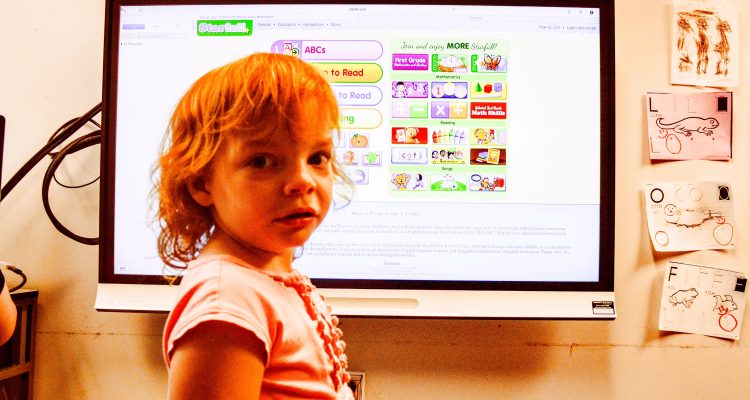She was this little, old lady. White hair. Hunched over.
She was getting off the public bus at a grocery store in a suburb of Washington, D.C., carrying her pink backpack, and Kathy Shapell felt sorry for her.
But that was before Shapell realized the mind that was inside the aged frame of Augusta K. Levy. Levy, then in her late 80s, dedicated her life to teaching, and she focused much of her efforts to reaching the unreachable and to teaching the unteachable.
Levy ended up in front of Shapell at that grocery store, and Shapell offered her a ride home. Levy accepted the invitation, and along the way Shapell learned of her credentials. Once Levy discovered that Shapell was working with special-needs students at the Ivymount School in Rockville, Md., she asked if she could visit her classroom. She wished to recite poetry.
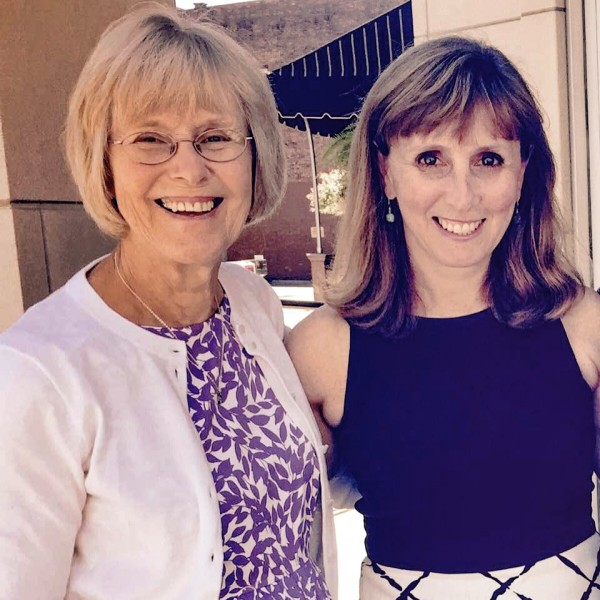
Shapell agreed to the visit, but did not know how Levy would be received by her often rambunctious pupils. Levy entered the classroom and sat down in front and began to read. The students stopped, and they listened, and following several weekly visits, they began to compose their own poems.
And that is why Shapell named the Augusta Levy Learning Center in her honor when she founded the academy 10 years ago. The learning center celebrated its 10th anniversary yesterday with the 2015 Color Me Au-some 5K in downtown Wheeling, an event that attracted more than 1,000 participants.
The Augusta Levy Learning Center offers intensive autism treatment, and each student has his or her individualized curriculum based on needs and abilities, and they receive as many as 30 hours of one-on-one instruction utilizing the Applied Behavior Analysis (ABA) method of teaching. According to Shapell, ABA is a systematic approach to teaching small yet measurable units of behavior that range from simple responses to spontaneous communication and social interaction. The intervention program, she explained, is based on extensive clinical experience, and more than 30 years of scientific research proves that ABA yields the best educational results for children on the spectrum of autism.
Shapell is a 1983 graduate of Shadyside High School and a member of the Class of 1987 from Bethany College. She received her master’s degree from George Mason University in 1992, and worked in the D.C. area with special-needs students for several years.
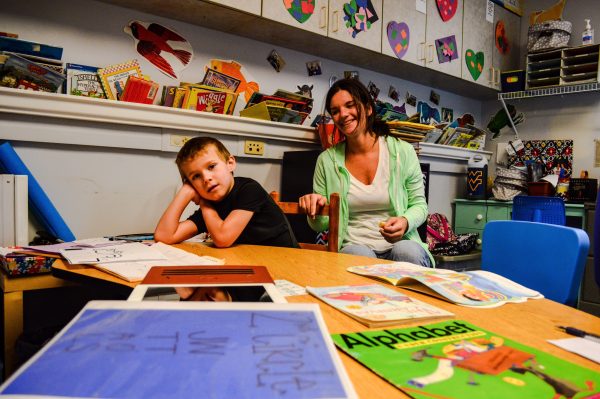
And then she moved home to the Upper Ohio Valley and soon realized the region’s school systems were far behind the educational programs with which she was familiar despite the scary statistics. In 2000, one in every 150 children born in the United States were diagnosed as on the spectrum of autism, but today the birth rate has increased to one in every 68 children, according to the federal Center for Disease Control
So Shapell did something about it at 99 Main Street in North Wheeling.
Novotney: How did you come to open the Augusta Levy Learning Center?
Shapell: When I moved back home and after I started Ohio Valley Parent, I wrote a lot of articles on issues related to special needs. I started to get a lot of phone calls about those from parents of children with special needs, and they were telling me that their kids were not receiving the services I was writing about.
That’s when I started to try to get our school districts to start programs, but they kept telling me that they were providing the appropriate programs for all of the kids. Eventually, I felt the sense of responsibility to do something about that. I really did not have the intention or desire to start a program, but it was something that I knew how to do; there’s a great need, and it’s not being done.
Novotney: What are your thoughts about the Miracle League of the Ohio Valley?
Shapell: It is such a great thing for this Valley; it really is. When the federal government first addressed special needs in the 1970s, it was to give the kids access because, at that time, they were locked away and institutionalized, and that continued into the 1980s. Initially, they passed an access law, but it’s gone beyond that. It’s now designed to give the kids a better quality of life. It’s now bigger than just access.
But access is still such a huge issue – not just in education but also in communities for people with disabilities. We now have a partnership with Oglebay Institute, and that partnership has improved access for our students, and that’s also what the Miracle League does for local families managing special needs. The Miracle League is an enormous blessing. It’s transformative for everyone involved.
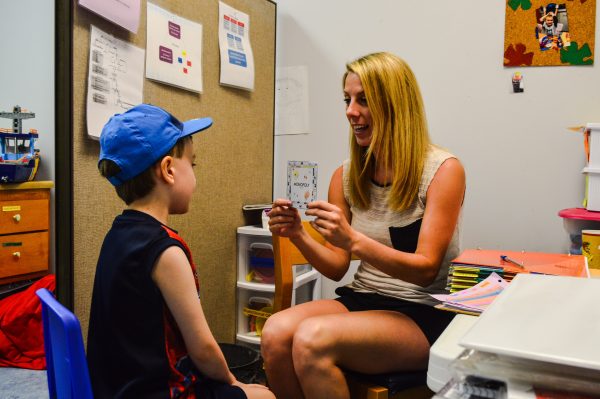
Novotney: Have there been improvements made with the programs in our local public schools?
Shapell: They have. That’s one of the good things that have happened since we opened. Almost every public school in the area has started some type of autism program over the past 10 years. Initially, it was a battle because the school districts did not like the public monies leaving their districts and flowing to Augusta Levy because we had the programs the parents wanted. We were not popular with the public schools. Rather than seeing us as a resource, they saw us as competition.
But now, with Ohio County Schools, we have a memorandum of understanding, and we have come a long way with them to make it a very positive situation for the children.
Novotney: The statistics pertaining to the numbers of Americans born on the spectrum of autism are frightening, are they not?
Shappel: They are. There’s a lot of money going into research to try to figure out the reasons why the numbers are increasing, and what they know for sure is that there some kind of genetic component. In our first five years we didn’t have any girls at all. We had all boys.
Novotney: The fact that the cause is still a mystery has to be very frustrating for you and your staff.
Shapell: I think it’s more frustrating for the families. It’s scary to families. No one knows how to avoid it.
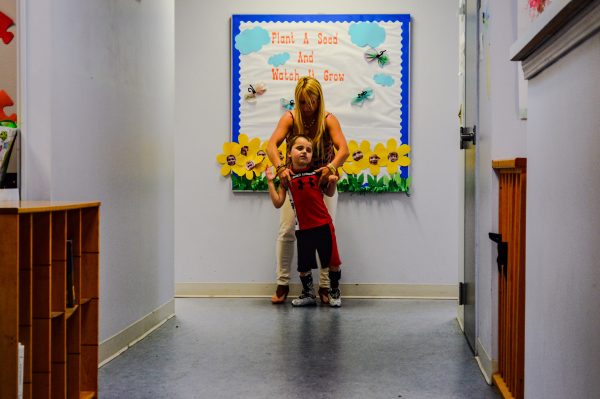
Novotney: Another scary fact is that children on the spectrum of autism grow up and become adults, and services for those adults are very limited.
Shapell: It’s a huge problem, and not just here but nationwide. The frustrating thing when it comes to autism is that it is either a “pay now or pay later” kind of disorder. If we can get early diagnosis and early, intensive intervention, 90 percent of the people will make progress at rates higher than those who go through the regular, public programs. Fifty percent of those folks will be indistinguishable among their peers, and that means they go on to lead typical lives.
If that doesn’t happen, it’s going to cost $3.2 million for a person’s lifetime. That’s why it doesn’t make sense to me why the money is not funneled to the early, intensive intervention. Here at Augusta Levy, we have a waiting list of more than 100 kids, and we’ll never get to all of those kids the way it is set up now.
What we do here works. It really works, and I just wish we were capable of reaching more people who need what we do here.
Novotney: So it’s all about the money?
Shapell: It’s all about the money, unfortunately.
We operate on the principle that whatever is best for the kids is what we will do. If it’s expensive, we’re going to do it because we’re not going to compromise quality for money purposes. If we did that, we wouldn’t get the same results.
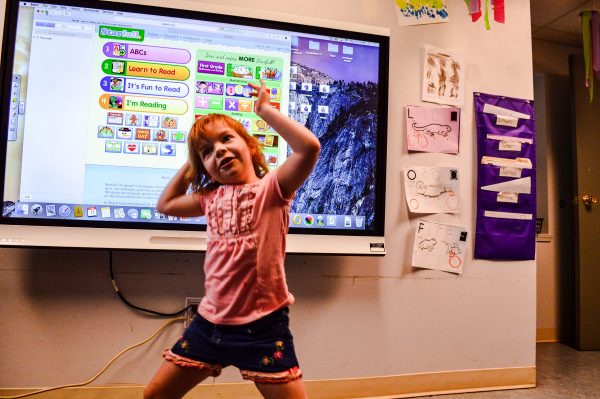
Novotney: Something else that would improve this situation would be if more people realized what this issue means for the country’s future. Do you agree?
Shapell: I do, but when you look at the state and federal budgets, money seems to always be an issue because so many people are trying to get what they need for many, many problems that we do have.
What I can say is that our local community has been incredibly supportive. We would not have survived 10 years without the great community support that we have received. It’s been a huge blessing.
Novotney: You also could not accomplish what you do here at the Augusta Levy Learning Center without a very dedicated staff.
Shapell: So true.
Our staff members are dedicated, they’re skilled, and they care. They are so committed to our children and families, and the work that they do is life-changing.
Most of our kids come to us non-verbal, and most are not able to understand language. They have interfering behaviors that do not allow them to learn from the outside environment like most children do, but our staff members transform them into kids who can communicate and who can socialize.
Our therapists are remarkable human beings doing remarkable things.
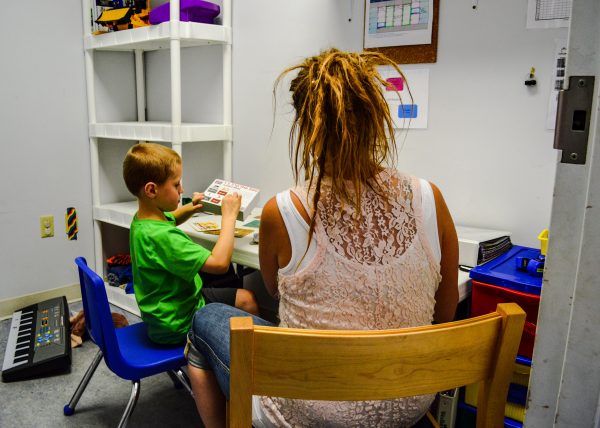
Novotney: Do you still think about Augusta Levy?
Shapell: I do.
I often think of her, and when we have situations that can be challenging I think about how wise she was, and I think about what she would do to get through those situations.
Novotney: Do you believe Augusta Levy would be proud of this learning center?
Shapell: Absolutely. She was always pushing. She was always trying to figure out how we could do better for the kids. She always wanted to reach more kids who were considered unreachable.
That’s why I believe she would really be proud of the work that we do here.


